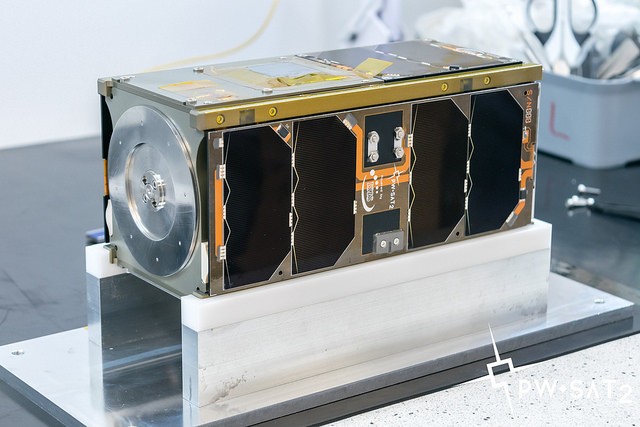Long-awaited start of the PW-Sat2 satellite

On December 3, 2018, the Falcon 9 rocket put into orbit the PW-Sat2, a Polish nanosatellite of CubeSat 2U standard, constructed by students of the Warsaw University of Technology. The device has been designed to perform several experiments, the most important of them, which is planned for the very end of the mission, being the test of fast deorbit technology. Forty days after launch, the satellite will deploy the so-called deorbit sail. If it works properly, the satellite will speed up its atmospheric braking and reduce its lifetime in orbit from 15-20 years to over a dozen months.
GMV, as Poland’s largest IT company specializing in the space sector, also contributed to the success of the Polish students’ satellite mission. GMV experts prepared a Mission Analysis (MA) training for all members of the Students Space Association of the Warsaw University of Technology. Additionally, two people from the PW-Sat team had the opportunity to take part in the GMV internship program. This allowed them to improve their skills in the field of MA, as well as use this knowledge and experience during the construction and improvement of the satellite in question. And for Artur Łukasik, one of the interns who is also the Deputy Coordinator of the PW-Sat project, the adventure with GMV did not end with the internship: he now works for the company as a Mission Analysis Engineer.
The European Space Agency estimates that more than 750 million pieces of space debris larger than 1 cm are currently orbiting Earth. A great many of these are disused satellites and small fragments created after collisions. Projects such as PW-Sat2 may result in subsequent space missions being equipped with a deorbit system, which will allow their faster removal from orbit, thereby slowing down the process of space contamination.